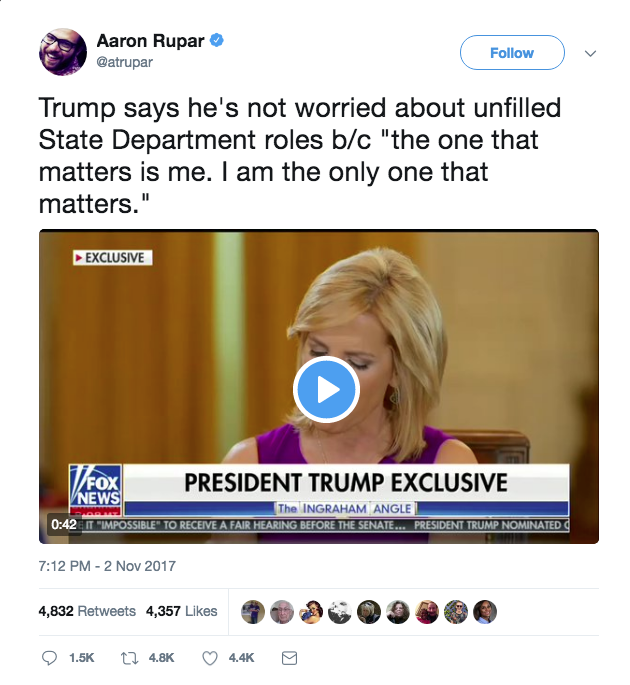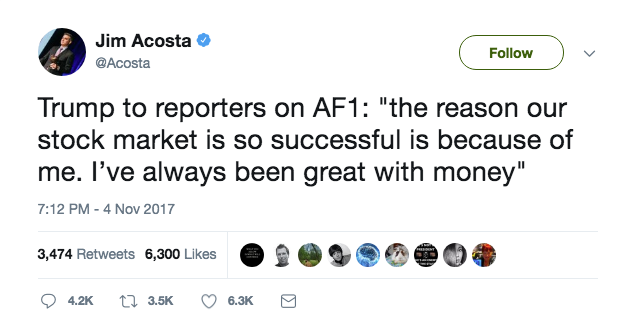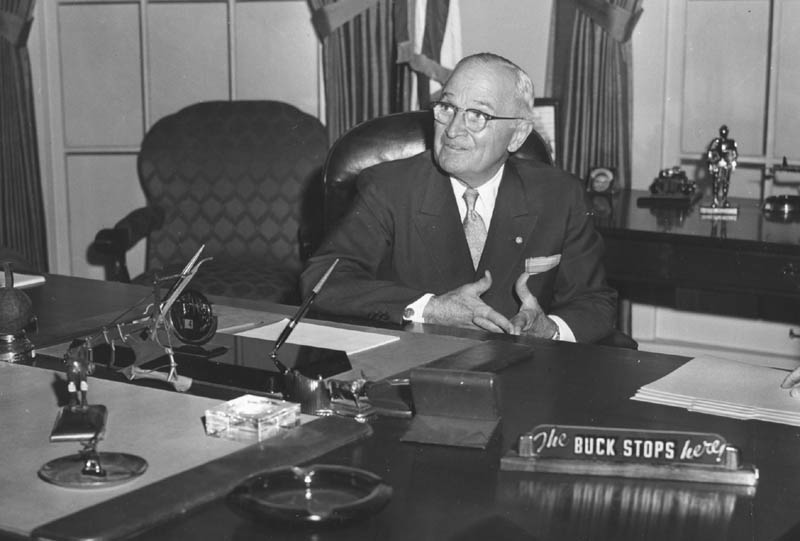May 14, 2004 by lonbud
Asleep At The Wheel
So let’s just recap things for a moment to get our bearings, shall we?
As George W. Bush and his team of policy makers were handed the reigns of power by that infamous Supreme Court majority in January 2001, Dick Cheney and Donald Rumsfeld had already been busily planning military action for Saddam Hussein’s ouster in Iraq.
When holdovers from the Clinton administration’s National Security task force presented Mr.Bush’s National Security Advisor Condolezza Rice with detailed plans for containing and defusing the threat of radical Islamic terrorism, they were not-so-graciously thanked for their efforts, and told that Dr. Rice would bring it up with the Vice President as soon as she could get his ear on the subject. Despite having been warned that radical Islamic terrorists represented the gravest, most immediate threat to the security of the Nation, Dr. Rice didn’t manage for nine months to have a conversation on the matter with either the Vice President or the President.
Throughout the Spring and Summer of 2001, warnings about some kind of imminent attack on American interests came to the surface from every level of the domestic and international intelligence communities, warnings which found their way to the Oval Office at least as early as the first week in August. George W. Bush, in his infinite capacity for laconic leadership, refused to let those warnings spoil or delay his Summer vacation.
Given that his Vice President and his Defense Secretary were finalizing their plan for invading Iraq, Mr. Bush may or may not have decided that an attack on American interests would dovetail nicely with the larger goal of removing Saddam Hussein from power. He may or may not have consciously refused to act on the warnings he’d received about the threat of radical Islamic terrorists; he may or may not have consciously refused to implement strategies that Richard Clarke and others had drawn up for dealing with that threat.
What is clear is that, on September 11, 2001, a handful of radical Islamic terrorists managed to breach American airport security and, armed with box cutters and penknives, gain control of four American commercial airliners. They then somehow managed to subvert the country’s domestic security apparatus, and, despite a host of standard operating procedures that should have rendered such a feat impossible, crashed two of the jets into New York’s World Trade Towers and another, possibly, into the Pentagon. Nearly 3000 people died as a result, and it was generally, roundly agreed: the world would never be the same.
Immediately, Mr. Bush donned the mantle of War President, pledging the Nation to a quest from which it would never waver and never rest until the last terrorist was removed from the face of the planet. Initially, the administration set its sights on Osama bin Laden, the ne’er-do-well scion of a wealthy and powerful Saudi Arabian family with which Mr. Bush and his family enjoyed an intimate, longstanding business relationship.
The supposed mastermind of the incredible feats of 9/11, Mr. bin Laden became Public Enemy #1 and the President vowed to capture him “dead or alive.” Because Mr. bin Laden had lately received aid and comfort from the radical Islamic Taliban government of Afghanistan, Mr. Bush sent the American military to that pitiful, woebegone country and easily chased the Taliban into the mountainous hinterlands. He did not, however, manage to capture Mr. bin Laden or, as is evident nearly three years later, halt the activities of radical Islamic terrorists based in the region.
Back home, many people had the temerity to demand an inquiry into how the heck those amateur pilots pulled off their big score on 9/11. Never publicly supportive of the idea of such a pesky endeavor, Mr. Bush’s first instinct was to appoint the notorious war criminal Henry Kissinger to oversee the effort of making sense of the most infamous day in American history since the Japanese bombing of Pearl Harbor. Oops. Even the ever-patriotic, flag-waving American public could see the flim-flam artistry in that tack, and Mr. Kissinger hastily recused himself from the limelight, muttering things about unavoidable conflicts of interest and his right to privacy.
Mr. Bush’s next instinct came closer to serving his interest in keeping the facts from public view. He put off naming a commission of inquiry as long as possible and then refused in every conceivable way to cooperate with its mandate, until the dogged persistence of the families of the victims of 9/11 forced a modest public reckoning this Spring, nearly three years after the event.
Consistent with the inadequacy that has marked his entire life, from his days as a third tier student and pep boy at Yale, to his utter failure as CEO for the doomed Harkin Energy concern, Mr. Bush’s strategy with respect to the inquiry seems destined to fall short of inoculating him from responsibility for 9/11 before voters go to the polls in November. The Commission’s report, saccharine though it is likely to be in the ultimate assessment of the many failures of policy and leadership that culminated in the tragedy of 9/11, should nevertheless become public in plenty of time for American voters to apprise themselves of Mr. Bush’s executive shortcomings.
Meanwhile, back at the ranch, the invasion of Iraq was a fait accompli, despite millions of people who turned out in the dead of winter across the globe protesting against it. To every sane, level headed argument against the war, the Bush administration proffered a harrowing rejoinder: Hussein possessed vast stockpiles of chemical and biological weapons of mass destruction; he’d been caught trying to buy yellowcake uranium in Niger for his nascent nuclear weapons program; unless he was deposed immediately he would sell or give chemical and biological weapons to Osama bin Laden; HE was the one actually responsible for 9/11; he could launch an attack against the U.S. or Israel within thirty minutes.
Every one of those rejoinders has since been shown to be a complete fabrication, cynical misrepresentations of uncertain or incomplete intelligence, paranoid fantasies designed to frighten the American public into supporting Mr. Bush’s longstanding plan to remove Saddam Hussein from power.
But why? To gain access to Iraq’s vast oil reserves for American oil interests? No, that is definitely not the reason we’re going to war in Iraq, the Bush administration told us. And yet, before the first shot had been fired, our government awarded no-bid contracts worth hundreds of millions of dollars to American corporations (among others, Bechtel and Halliburton, two giant oil service entities with close ties to the Bush/Cheney regime), who have been the chief beneficiaries of the oil resources in post-Saddam Iraq.
Were we offered the proposition of spending some two hundred billion dollars on a nation-building exercise, to remake an ancient, tribal, Muslim society in our democratic image so that peace might bloom throughout the Middle East? No, this is not about nation-building, Mr. Bush and Mr. Cheney and Mr. Rumsfeld protested. And yet, when the weapons of mass destruction were shown to be a chimera, when the “threat” posed by Saddam Hussein was shown to be non-existent, when his alleged ties to Mr. bin Laden’s Al Qaeda organization were proved to be unfounded, nation-building was precisely the justification the Bush administration fell back on to explain why we couldn’t simply leave Iraq and the management of its affairs (oil-related and otherwise) to the Iraqis.
So there we were, and there we be.
There are those who insist on pointing out, whatever his failings, Mr. Bush has brought the light of freedom to two formerly oppressed countries. The fact is that the hundreds of billions of dollars and tens of thousands of lives (including more than one thousand U.S. military) the Bush administration has squandered in Afghanistan and Iraq have purchased little more than superficial, cosmetic change in the day-to-day realities of life in those two countries.
In Afghanistan, power flits like a live grenade among the handful of ethnic and tribal interests who have vied to control the region for centuries. Government sadists no longer stone women in the street, but bombs still explode there. The occasional political assassination crops up, and renegade militia continue to engage American troops, killing alike the grunts and celebrities among them.
When things began to turn sour in Iraq, after an embarrassingly brief interlude following Mr. Bush’s flight suit catwalk under the “Mission Accomplished” banner, he was queried about Osama bin Laden, and whether his capture remained a priority of the Bush administration. Mr. Bush remarked that he didn’t know the whereabouts of Mr. bin Laden and he didn’t care whether we caught him or not. This seemed an odd retreat from his former vow to get Public Enemy #1 “dead or alive,” but Mr. Bush’s situation was now far different than it had been in the Fall of 2001, when the entire world wished to embrace the tough-talking Texan.
Since then, the Secretary of the Treasury had quit his post and published a book outlining the staggering degree to which the administration’s fiscal policies were out of touch with sound economic principles. The former secretary lamented that, of the many administrations under which he’d worked in a distinguished career, the Bush team was the most driven by political philosophy at the expense of public policy.
The revelation came that Mr. Bush used false and misleading statements in his State of the Union address to the nation just weeks before ordering American troops into combat in Iraq.
Former Ambassador Joseph Wilson had been dispatched to Niger to verify that Saddam Hussein’s agents tried to buy uranium there, but he returned with a report saying those claims were specious at best. This, however, was unacceptable to the Bush team. They had been counting on the incendiary effect of the accusation to galvanize public support for an invasion of Iraq. When Mr. Wilson went public with his assessment of the claim after Mr. Bush levied it in his Sate of the Union address, the White House retaliated by leaking the identity of Mr. Wilson’s wife as an undercover CIA operative.
Another former administration employee published a book detailing for the first time ­in a way the general public finally began to grok- Mr. Bush’s singular obsession with Saddam Hussein. Having devoted his professional life to understanding, identifying, and protecting the United States from international terrorists, Richard Clarke brings a certain gravitas to the current discussion on why the world seems such a dangerous place all of a sudden. His primary conclusion, and the motivation for him to walk away from over thirty years in the counter-terrorism industry, was that the Bush administration’s fixation on Iraq and Saddam Hussein is misplaced. The orgy of funding for “rebuilding” Iraq takes badly needed resources from the far-more-important task of defending ourselves and our interests from Mr. bin Laden’s Al Qaeda. The prospect of stationing American troops in the Middle East indefinitely -increases, rather than diminishes, the likelihood of terrorism in the world.
Mr. Bush shut down Saddam Hussein’s torture chambers, cry our apologists for war. Well, “took them over” is a bit closer to the truth, if the latest news out of Iraq is any indication. With over 40,000 Iraqis in custody, the Pentagon ordered they be “softened up” for interrogation by troops the military failed to train as either jailers or interrogators. Left to their own devices, many of our young soldiers saw fit to sexually abuse and humiliate their prisoners of war. Others saw fit to beat, maim, and possibly kill them. Thus far, no one in the command structure has been held accountable for these war crimes, and while the President and the Secretary of Defense have issued public “apologies,” the Bush administration has failed to embody its remorse with anyone’s resignation from office.
Life in post-Saddam Iraq is no doubt more wide open, even Wild West-like in its many dimensions, but, again, at what cost? How many Americans will lose their heads there before we consider a different approach to the problem of radical Islam?
Modern, industrialized, wealthy, capitalist people on this Earth are in serious conflict with ­among many things- undeveloped, poor, desperate people. Many from both camps seem destined to die a violent death. It ought not, and needn’t be so.



Leave a Reply
You must be logged in to post a comment.